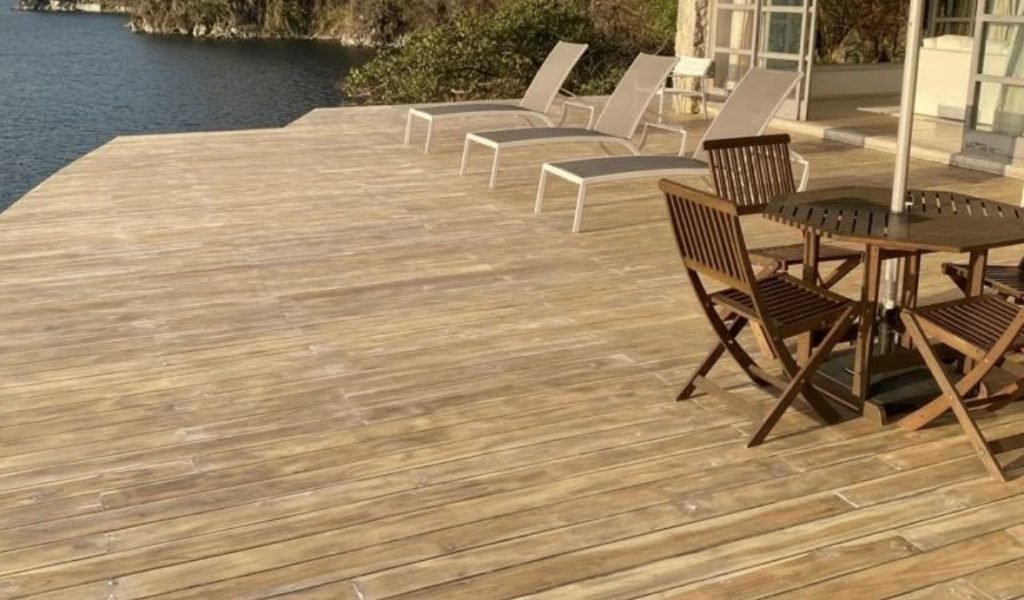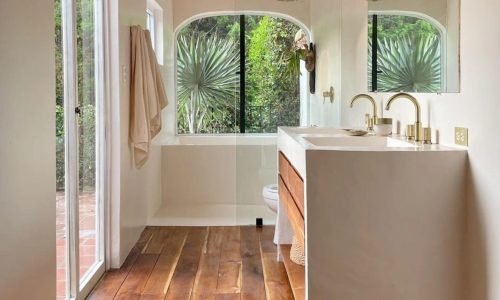
The Unique Properties of Teak: Nature’s Perfect Hardwood

Teak wood (Tectona grandis) is celebrated for its superior qualities, making it a preferred material across industries such as furniture manufacturing, boat building, flooring, and architecture. What sets teak apart from other hardwoods is a combination of natural resilience, longevity, and aesthetic appeal. Its ability to withstand extreme weather, resist pests, and develop a unique patina over time makes it a valuable investment.
This article explores the unique properties of teak and explains why it is a top choice for both indoor and outdoor applications.
1. Natural Resistance to Water and Moisture
Teak is renowned for its water-resistant properties, which make it ideal for use in outdoor furniture, marine applications, and decking. The wood contains natural oils and silica that prevent water from penetrating the surface, thereby reducing the risk of rot, swelling, or cracking.
This moisture resistance makes teak a favorite among boat builders and perfect for areas with high humidity, such as bathrooms and pool decks. Unlike other woods, teak retains its structural integrity even when continuously exposed to water.
2. Exceptional Durability and Longevity
Teak is one of the most durable hardwoods, withstanding years of exposure to harsh environments without deteriorating. Its density makes it resistant to warping, cracking, and splitting, even in extreme temperatures.
Furniture or decking made from high-grade teak can last for decades or even generations with minimal maintenance, offering excellent long-term value.
Did You Know?
Some ancient structures made with teak wood, such as temples in Southeast Asia, are still standing today after centuries, showcasing the wood’s remarkable durability.
3. Natural Pest and Termite Resistance
One of teak’s most unique features is its ability to resist termites, wood-boring insects, and fungi. The natural oils within teak act as a deterrent to pests, making it ideal for both indoor and outdoor environments.
In comparison to other types of hardwood that require chemical treatments to protect against insects, teak provides a chemical-free, eco-friendly solution.
4. Low Maintenance Requirements
Teak wood is easy to care for, which adds to its appeal for homeowners and builders alike. Even without regular treatment, teak ages gracefully, developing a silver-gray patina over time. For those who prefer the wood’s original golden-brown tone, occasional applications of teak oil or sealants will maintain its appearance.
- For Outdoor Furniture: Simple cleaning with mild soap and water is usually enough.
- For Indoor Furniture: Use teak oil or a furniture polish to enhance its luster and prevent drying.
5. Aesthetic Appeal and Timeless Beauty
Teak’s rich, warm tones and fine grain give it a natural elegance that complements both modern and traditional designs. Over time, the wood darkens slightly, adding more depth and character to any space.
Its timeless appearance makes teak a popular choice for luxury furniture, high-end flooring, and bespoke architectural elements. Whether used indoors or outdoors, teak brings a touch of sophistication to any project.

6. Slip-Resistant Surface for Decking and Boats
Teak’s unique texture and oil content provide a non-slip surface, even when wet. This makes it an excellent material for boat decks, outdoor stairs, and swimming pool surrounds. Many luxury yachts use teak decking for both its practical advantages and elegant look.
Unlike synthetic materials, which can become slippery over time, teak wood offers natural grip and safety, making it a top choice for marine and outdoor environments.
7. Environmental Sustainability
As global demand for sustainable materials grows, teak has remained a responsible choice. Reputable suppliers harvest teak from sustainable plantations to reduce environmental impact. Many of these plantations are FSC (Forest Stewardship Council) certified, ensuring ethical sourcing and responsible forest management.
Additionally, teak’s longevity and low maintenance requirements make it an eco-friendly material. Products made from teak need fewer replacements over time, reducing waste and environmental impact.
8. Resistance to UV Rays and Weathering
Teak wood naturally resists UV radiation and retains its strength and structure even under prolonged exposure to sunlight. For this reason, it is a preferred material for outdoor furniture, decking, and garden structures.
The wood’s surface may gradually weather to a silver-gray color, but this doesn’t affect its performance. Many people appreciate this natural weathering for the unique charm it adds to outdoor spaces.
9. High Oil Content for Self-Preservation
The high concentration of natural oils within teak plays a critical role in its resilience and longevity. These oils act as a barrier against moisture, pests, and rot, preserving the wood’s integrity over time.
Unlike other hardwoods that require frequent treatments with preservatives, teak maintains its properties without additional chemicals, making it ideal for eco-conscious projects.
10. Versatility Across Applications
Thanks to its unique properties, teak is highly versatile and used across various industries, including:
- Furniture Manufacturing: For both indoor and outdoor furniture pieces.
- Marine Applications: Boat decks, yacht interiors, and ship fittings.
- Architectural Elements: Window frames, doorways, and wall cladding.
- Decking and Flooring: Teak adds elegance to patios, terraces, and interiors.
This versatility makes teak a top choice for manufacturers, builders, and designers looking for a high-performance material that offers both style and substance.
Choosing Quality Teak: What to Look For
When purchasing teak, it’s essential to understand the differences between Grade A, B, and C teak:
- Grade A Teak: Contains the highest oil content and comes from the heartwood of mature trees. Best for outdoor furniture and marine use.
- Grade B Teak: Taken from the outer heartwood with lower oil levels. Suitable for indoor applications.
- Grade C Teak: Comes from immature trees and contains minimal natural oils, making it less durable.
For eco-conscious consumers, reclaimed teak offers a sustainable and rustic option.
Conclusion: Why Teak Stands Above the Rest
Teak’s unique properties—natural resistance to water, pests, and UV rays, combined with its durability, beauty, and sustainability—make it a premium choice across industries. Whether you’re designing luxury furniture, building a yacht deck, or installing elegant flooring, teak delivers unmatched performance and aesthetic appeal.
Investing in teak ensures that your projects not only look exceptional but also last for generations with minimal upkeep. With sustainable sourcing options available, using teak aligns with both practical and environmental goals, making it an excellent material for high-end applications.
Let's work together
We are teak suppliers for all your needs. Leave us a message and we will reach out to you in less than 2 hours to assist you.